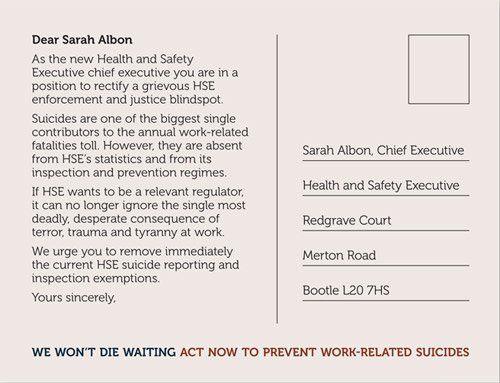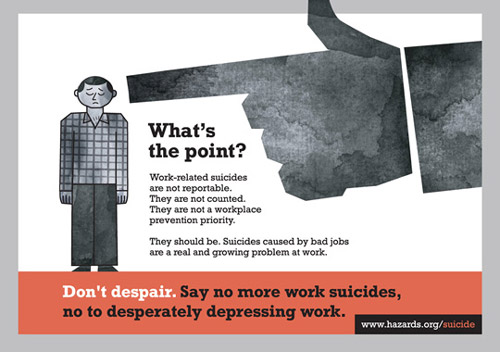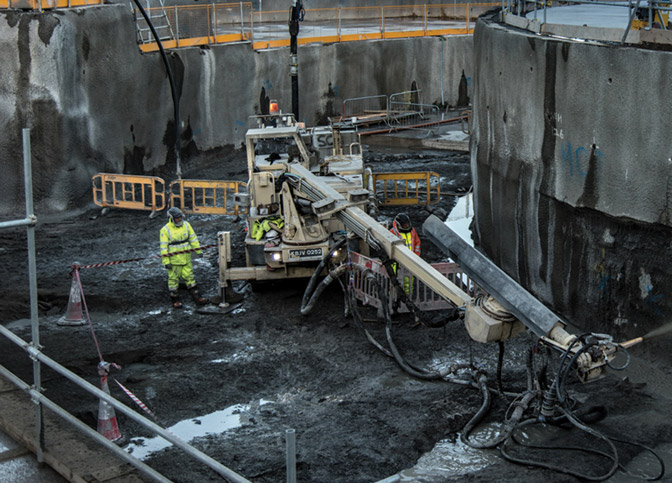
When Unite revealed the new Hinkley Point nuclear power station was grappling with a mental illness crisis, it led to action. The union discovered there had been several attempted suicides since work began in 2016 on Britain’s biggest construction project.
More than 4,000 workers are on the Hinkley Point C site, where Unite officials said problems came to a head this year. They point to a surge in suicide attempts and a rise in the number of people off sick with stress, anxiety and depression. Unite officials say they have been told of 10 suicide attempts in the first four months of 2019. At least two workers connected to the project are believed to have taken their lives.
REMEMBER US Work-related suicide should be “recognised in legislation”, with the employer required to prove a suicide was not related to their job rather than putting the burden of proof on the victim’s representatives, the communications’ union CWU has said. The union call came in a written response to a UK National Institute for Health and Care Excellence (NICE) consultation on Suicide Prevention Quality Standards. more
“We were in utter shock when they told us the statistics around suicides and mental health,” said Malcolm Davies, a Unite convenor at Hinkley Point C. “The scale of the mental health issues at Hinkley is something I have never seen before. We are in a phase now with mental health where we were with safety 50 years ago. The same number of people are going off, only now they are not going off with injuries. They are going off with stress.”
This is one of the better jobs. The union says the client at Hinkley, Électricité de France (EDF), “has taken mental health seriously and worked with Unite, for instance in training workers and union activists in mental health first aid.” Elsewhere, Unite says, the problem is likely to be more serious, but hidden and unaddressed.
It said the key factors behind mental health problems in the construction industry are a result of the hire and fire culture, where direct employment is low, engagements are short and most workers are bogusly self-employed and working long hours, often away from home.
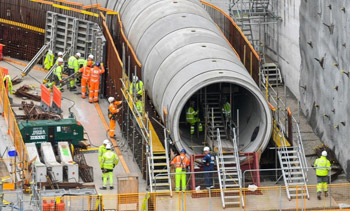
SUICIDE SHOCK Unite’s Gail Cartmail said the suicide and stress problems at Hinkley C had become visible because of the strong union presence on the site, but the industry more typically operates a “dog eat dog” approach.
Unite assistant general secretary Gail Cartmail said the problems at Hinkley C had become visible because of the strong union presence on the site, but elsewhere there was a “dog eat dog” approach.
“Unite is open to talk with sector bodies, clients, contractors, government ministers and civil servants about solutions that tackle the cause not just the symptoms of the mental health epidemic now rife in construction,” she said. “A 21st Century construction 'accord' could establish a turning point that could literally save lives.”
And it is not just construction. In August 2019, Unite urged Amnesty International to abandon ‘swingeing’ redundancy plans introduced despite a report identifying a need to address widespread stress-related ill-health and a ‘toxic’ workplace environment linked to two suicides.
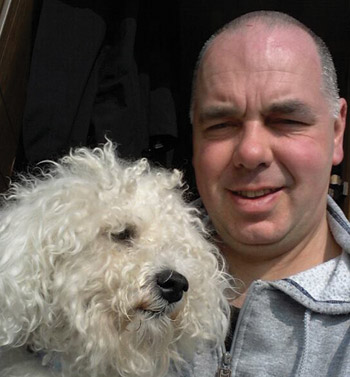
TESCO TRAGEDY An award-winning Tesco worker traumatised after being help up at gunpoint in a store robbery last year killed himself months later after he was fired for chasing a shoplifter. An August 2019 inquest heard Shaun Winstanley, 49, who had worked for the supermarket chain for 17 years, was fired by Tesco for “unreasonable behaviour” after trying to chase down the shoplifter on 2 January 2019. He was found dead on 13 February, a week after his appeal was rejected. Coroner Clare Doherty, recording a conclusion of suicide, said: “Mr Winstanley had suffered a marked mental deterioration last summer while at work he had witnessed at armed robbery,” she said. “It does appear that he had fragile mental health and these events had caused a deterioration.”
Research commissioned by Public Health England found for women, occupations with a high risk of suicide include nurses, primary school teachers and those working in culture, media and sport (Hazards 137).
For men, construction was joined by low skilled male labourers in the high risk category. UK universities have been hit by suicide scandals. Studies have shown injured workers with chronic pain or on long-term sick are also at elevated risk.
Hazards this year accused the Health and Safety Executive (HSE) of having a ‘deliberate blindspot’ on work-related suicide (Hazards 146). This includes an explicit HSE instruction to its inspectors to steer clear of investigating suicides and HSE demanding the recording by law of all work-related deaths “with the exception of suicides.”
On 1 September 2019, a new chief executive took up the reins at HSE. Sarah Albon can make a choice. She can like her predecessors turn a blind eye to the employer abuses that drive people to suicide. Or she can drag HSE out of its descent into irrelevance.
Suicidal thoughts and suicides related to work are not new. But they are a direct and growing consequence of modern management methods and work organisation.
Dead serious. Do something.
![]()
ACTION! Use the Hazards e-postcard to tell the HSE to inspect for work-related suicide risks and to investigate and require the reporting of suicides suspected to be work-related. www.hazards.org/hsesuicide
![]()
Work-related suicide should have legal recognition
Work-related suicide should be “recognised in legislation”, with the employer required to prove a suicide was not related to their job rather than putting the burden of proof on the victim’s representatives, the communications’ union CWU has said. The union call came in a written response to a UK National Institute for Health and Care Excellence (NICE) consultation on Suicide Prevention Quality Standards.
CWU’s national executive (NEC) and Mental Health Strategy Project Working Group said the union’s response was informed by a decision at the union’s 2019 conference, calling on it to campaign to “ensure that workplace suicide is recognised in legislation” and that it “place the burden of proof on the employer to demonstrate that the suicide was not work-related.”
The CWU’s detailed submission notes the “evidence suggests that there has been a rise in work related suicides in the face of growing pressures at work” (Hazards 137). It adds: “Not only are employers well placed to assist in the prevention of suicide, but they should be under an obligation to do so because of the enormous influence of work on mental wellbeing and suicide.”
The union submission concludes “the CWU supports the NICE suicide prevention quality standard but we believe employers should be involved in this initiative. Work has a huge impact on mental health, and evidence suggests that work-related suicides have increased due to the growth of job insecurity and work intensification. Employers have a responsibility to contribute to suicide prevention and it is in their interests to do so.
“We believe it is reasonable to expect that many employers would be open to being part of a multi-agency suicide prevention partnership. The involvement of trade unions is equally important as the representatives of millions of workers across the UK.”
Death wish
Suicide linked to workplace factors is one of the biggest single causes of work-related fatalities. Hazards editor Rory O’Neill challenges the Health and Safety Executive’s flat refusal to investigate, record or prevent workplace suicides or to take action against the bad bosses pushing us to the brink.

| Related stories | |
| • | Work-related suicide should have legal recognition |
| Hazards webpages | |
| • | Suicide |
| • | Stress and mental health |
| ACTION! | |||
| Use the Hazards e-postcard to tell the HSE to inspect for work-related suicide risks and to investigate and require the reporting of suicides suspected to be work related. |
|||

